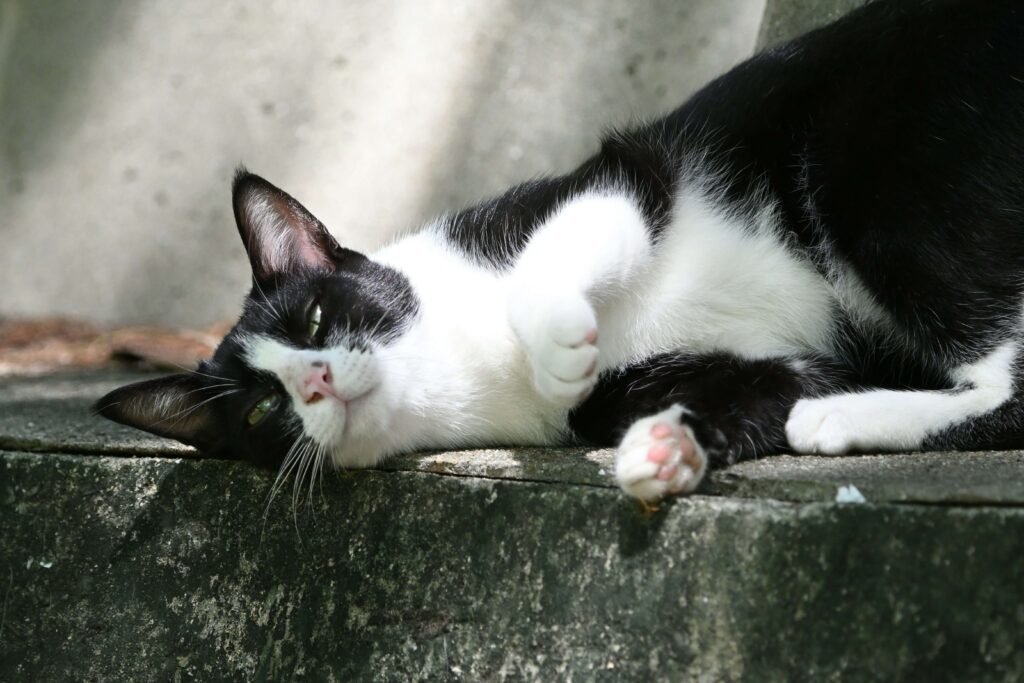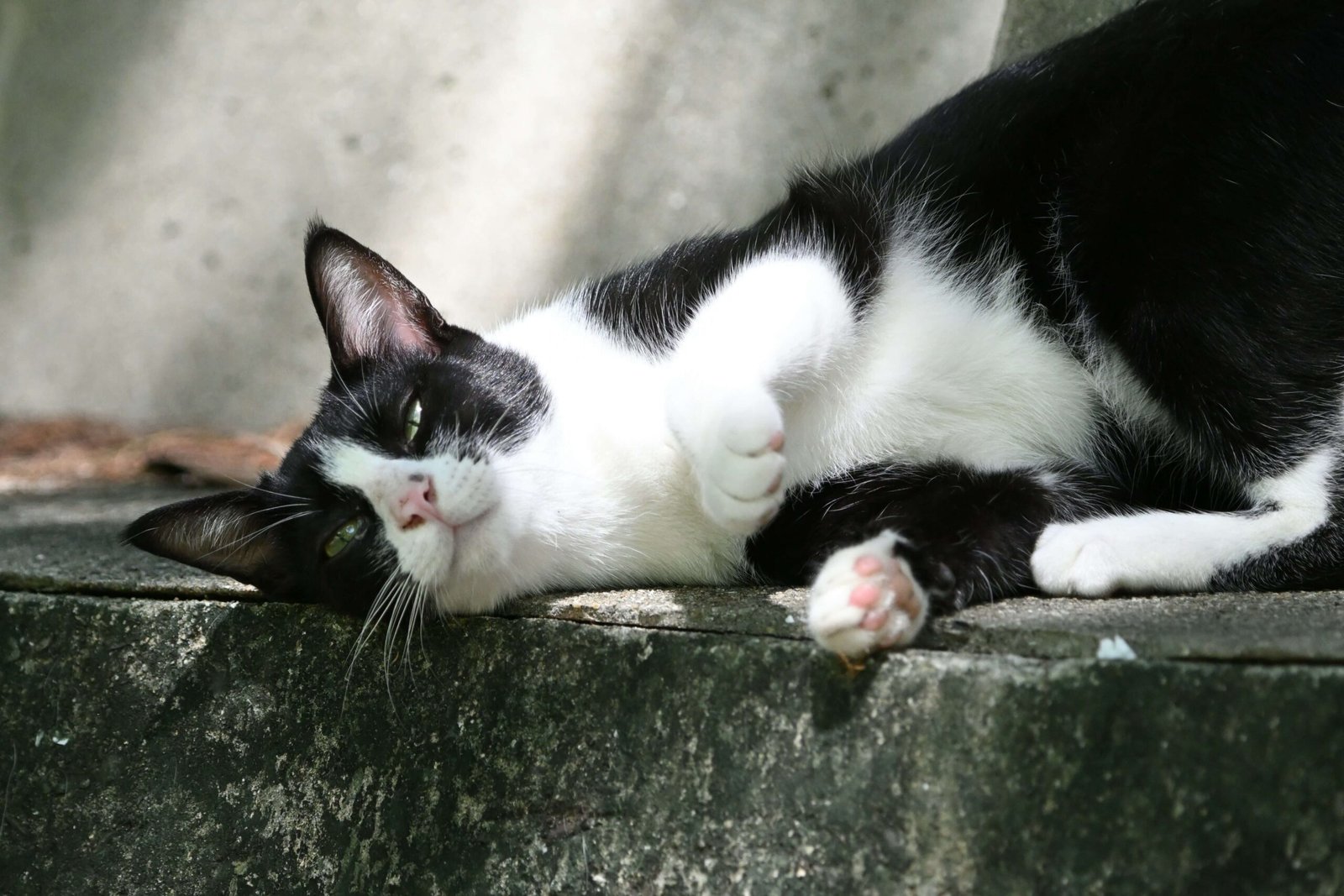Why is My Cat Meowing So Much All of a Sudden?
Cats are known for their mysterious and independent nature, but when your feline friend suddenly starts meowing non-stop, it can leave you puzzled and concerned. Whether it’s a new behavior or an escalation of their usual vocalizations, excessive meowing can signal a variety of things—some harmless, others requiring attention. Understanding why your cat has become more vocal is key to ensuring their well-being and maintaining harmony in your home. In this blog post, we’ll explore the possible reasons behind this sudden change, what you can do about it, and how to decode your cat’s newfound chattiness.
Common Reasons Behind Excessive Meowing
If your cat has started meowing excessively, there could be several explanations. Below are some common causes that might explain this sudden shift in behavior:
Hunger or Thirst
Cats often meow when they’re hungry or thirsty. If their feeding schedule has changed or their bowl is empty, they may vocalize to get your attention.Loneliness or Boredom
Cats are social creatures, even if they seem aloof at times. If your cat feels neglected or doesn’t have enough stimulation, they might meow to express their need for companionship.Seeking Attention
Sometimes, cats simply want interaction. They may meow to initiate playtime, petting, or cuddles.Stress or Anxiety
Changes in the environment, such as moving homes, new pets, or loud noises, can cause stress and lead to increased vocalization.Health Issues
Persistent meowing can sometimes indicate underlying health problems like pain, cognitive dysfunction, or urinary tract infections.
Understanding these potential triggers can help you pinpoint the reason behind your cat’s behavior. Once you identify the cause, addressing the issue becomes much easier.
How to Respond to Your Cat’s Increased Vocalization
When your cat starts meowing excessively, responding appropriately is crucial. Here’s how you can address the situation while keeping your cat’s needs in mind:
Check Their Basic Needs
Ensure your cat has access to fresh water and food. A simple solution like refilling their bowl might stop the meowing instantly.Provide Mental Stimulation
Engage your cat with toys, puzzles, or interactive games. This helps channel their energy into something productive and reduces boredom-related meowing.Spend Quality Time Together
Dedicate time each day to bond with your cat through play or grooming. This reassures them that they’re not alone and strengthens your relationship.Create a Calm Environment
Minimize stressors by maintaining a consistent routine and providing safe spaces where your cat can retreat if feeling overwhelmed.Consult a Veterinarian
If the meowing persists despite addressing environmental factors, schedule a vet visit to rule out any medical conditions.
By taking these steps, you can effectively manage your cat’s behavior and ensure their comfort and happiness. Remember, patience is key when dealing with sudden changes in your pet’s habits.
Check this guide 👉Why Does My Cat Meow in the Litter Box? Best 7 Tips!
Check this guide 👉Why Is My Cat Meowing So Loudly? Best 7 Expert Behavior Tips
Check this guide 👉When Your Cat Wakes You Up Meowing: Best 7 Expert Tips!

Possible Causes of Excessive Meowing | Ways to Address It |
|---|---|
Hunger or thirst | Refill food and water bowls regularly |
Loneliness or boredom | Offer interactive toys and spend quality time together |
Stress or anxiety | Maintain a calm and stable environment |
Seeking attention | Respond positively to reinforce good behavior |
Underlying health issues | Schedule a check-up with the veterinarian |
Signs That Your Cat’s Meowing Is Behavioral vs. Medical
Not all excessive meowing stems from behavioral issues; sometimes, it’s a sign of an underlying medical problem. Here’s how to differentiate between the two:
Behavioral Signs
Your cat seems otherwise healthy, active, and content but tends to meow during specific situations (e.g., mealtime or playtime).Medical Warning Signs
Look out for symptoms like lethargy, vomiting, limping, or difficulty using the litter box alongside frequent meowing.Age-Related Changes
Senior cats may develop cognitive decline, leading to confusion and increased vocalization, especially at night.Environmental Triggers
Loud noises, unfamiliar guests, or rearranged furniture can provoke anxiety-induced meowing.Repetitive Patterns
If the meowing occurs consistently at certain times or places, it’s likely linked to habit rather than illness.
Recognizing whether your cat’s meowing is behavioral or medical will guide you toward the right course of action. Always err on the side of caution and consult a professional if unsure.
Tips for Managing Nighttime Meowing
One of the most frustrating scenarios is when your cat decides to meow loudly in the middle of the night. Fortunately, there are ways to curb this behavior:
Establish a Bedtime Routine
Feed your cat and engage them in play before bedtime to tire them out and reduce nighttime activity.Ignore Attention-Seeking Behavior
Reward silence instead of responding to meows, as giving in reinforces the unwanted behavior.Keep Them Occupied
Leave out puzzle feeders or automated toys to keep your cat entertained while you sleep.Adjust Lighting Conditions
Dimming lights signals bedtime, helping your cat understand when it’s time to wind down.Address Separation Anxiety
Provide cozy sleeping spots near you or consider adopting another cat for companionship if appropriate.
With consistency and patience, you can train your cat to respect your sleep schedule. Over time, nighttime meowing should decrease significantly.
Understanding Your Cat’s Vocal Patterns
Cats communicate through a variety of vocalizations, and understanding their unique “meow language” can help you better interpret their needs. Here are some common vocal patterns and what they might mean:
Short, Soft Meows
These are often friendly greetings or requests for attention. They’re your cat’s way of saying hello or asking for a little affection.Long, Drawn-Out Meows
A prolonged meow could indicate frustration, impatience, or even hunger. It’s like your cat is emphasizing their point to get your attention.High-Pitched or Urgent Meows
This type of meowing is usually associated with pain, fear, or distress. If your cat sounds unusually frantic, it’s important to investigate further.Chirps or Trills
These playful sounds are often used to express excitement or curiosity. Cats may chirp when watching birds or engaging in hunting behaviors.Low, Guttural Growls
Unlike typical meows, growling indicates aggression or discomfort. If your cat makes this sound, give them space and avoid forcing interaction.
By familiarizing yourself with these vocal patterns, you’ll be better equipped to decode your cat’s messages and respond appropriately. Remember, context matters—always consider the situation alongside the sound.
Environmental Factors That Trigger Meowing
Your cat’s environment plays a significant role in their behavior, including how much they meow. Small changes around the house can lead to increased vocalization. Below are some environmental factors that might trigger excessive meowing:
Changes in Routine
Cats thrive on consistency. Alterations to feeding times, bedtime routines, or daily schedules can leave them feeling unsettled and more vocal.Introduction of New Pets
Bringing a new animal into the home can cause territorial stress, leading to increased meowing as your cat adjusts to sharing their space.Noisy Surroundings
Loud noises from construction, parties, or household appliances can startle your cat and provoke anxious meowing.Moving to a New Home
Relocating is a major change for cats, and they may meow excessively while trying to acclimate to an unfamiliar environment.Lack of Enrichment
A monotonous environment without toys, climbing spaces, or mental stimulation can leave your cat bored and seeking attention through meowing.
Addressing these environmental triggers can help reduce unnecessary meowing. Creating a stable, enriching, and calm atmosphere will make your cat feel safer and more content.
Building a Stronger Bond Through Communication
Strengthening your bond with your cat involves learning how to communicate effectively. By responding to their meows thoughtfully, you can build trust and mutual understanding. Here are some ways to enhance communication with your cat:
Observe Their Body Language
Pay attention to your cat’s posture, tail movements, and facial expressions. These cues often accompany meows and provide additional context.Use Positive Reinforcement
Reward quiet behavior with treats or praise to encourage good habits. Avoid reinforcing excessive meowing by only responding when they’re calm.Engage in Interactive Play
Regular play sessions not only tire out your cat but also strengthen your connection. Use wand toys or laser pointers to keep them entertained.Talk Back (Gently)
Responding to your cat’s meows with soft words or gentle tones can create a sense of dialogue, making them feel heard and understood.Respect Their Boundaries
Sometimes, cats meow because they need space. Learning when to step back shows respect for their individuality and fosters trust.
By investing time and effort into understanding your cat’s communication style, you’ll deepen your relationship and minimize misunderstandings. After all, a happy cat makes for a harmonious home!
Frequently Asked Questions About Excessive Cat Meowing
Why does my cat meow so much at night?
Cats are naturally crepuscular, meaning they’re most active during dawn and dusk. Establishing a routine can help regulate their sleep cycle.
Can excessive meowing be a sign of illness?
Yes, persistent meowing accompanied by other symptoms could indicate a medical issue. Consult your vet to rule out diseases.
Is it normal for older cats to meow more?
As cats age, they may experience cognitive decline or discomfort, which can increase vocalization.
Should I punish my cat for excessive meowing?
No, punishment can increase stress and worsen the behavior. Instead, focus on positive reinforcement.
How long does it take to reduce excessive meowing?
The timeline varies depending on the cause, but consistent training and addressing the root issue usually yield results within weeks.
Final Thoughts: Decoding Your Cat’s Meows
Excessive meowing can be both puzzling and overwhelming, but understanding its causes empowers you to provide the best care for your furry companion. By paying close attention to your cat’s needs—whether physical, emotional, or environmental—you can address the root of the problem effectively. Remember, every cat is unique, and what works for one may not work for another. Stay patient, observant, and proactive, and don’t hesitate to seek professional advice when needed. With love and dedication, you’ll soon restore peace and quiet to your home while strengthening the bond you share with your beloved feline.
Do Cats Have Taste Buds? Best 7 Expert Tips! – Discover how cats experience flavors and why their taste is so unique.
Do Dogs Have Taste Buds? Best 7 Expert Tips! – Discover how dogs experience taste, their preferences, and what it means for their diet and health.
Can Cats Taste Sweet? Best 7 Expert Tips! – Discover why cats can’t taste sweetness, how it affects their diet, and tips to keep them healthy and happy.
Can Dogs Taste Sweet? Best 7 Expert Tips! – Discover how dogs perceive sweetness, which foods are safe, and tips to manage their sweet cravings responsibly.





